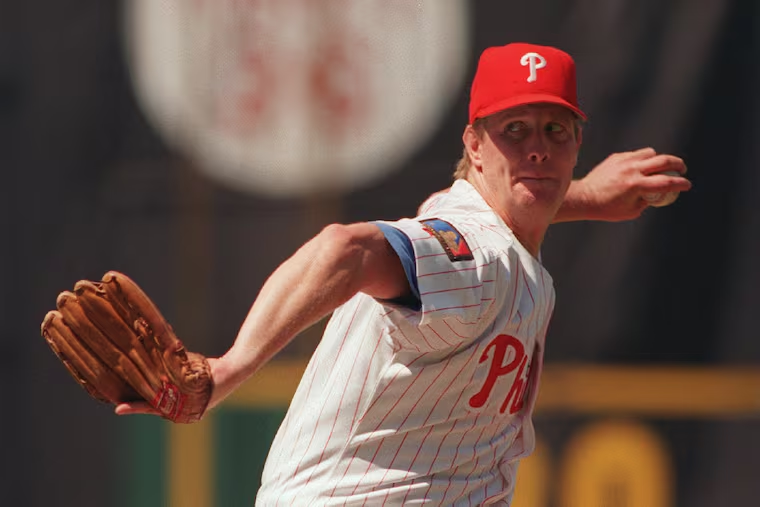‘Everyone loved him’: David West and his groceries played a key role for the 1993 Phillies
West, who died from brain cancer, was a steady late-inning presence for the '93 National League champs. And perhaps his secret was his late night room-service orders.

The Phillies players were allowed to have their own hotel room on the road as long as they paid for half, which David West and Larry Andersen did in 1993 during that magical season.
The relievers -- who both had career years that summer, just like many of their teammates -- made sure the team’s traveling secretary booked them in adjoining rooms. And the pitchers, who became instant friends as they hung in the bullpen, had one rule: The door between rooms always had to stay open.
“We’d get back after a game and he’d be in his room and I’d be in mine,” Andersen said. “And I would just hear this ‘Lar, groceries.’ I said ‘No, come on Wastay.’ I’d hear him on the phone, ‘Yeah, give me a hamburger. Lar, you want a hamburger?’ ‘No, I don’t want anything.’ ‘Make that two hamburgers. You want cheese?’ ‘No, I don’t.’ ‘Yeah, put cheese on both of them.’
“There were 81 games on the road and it seemed like every other night I would hear that. ‘Lar, groceries.’ It was constant.”
It was moments like that -- eating room service late at night during the grind of the season -- that Andersen thought of when his buddy died Saturday at 57 years old after a battle with brain cancer.
West, Andersen said, was just naturally funny as the Memphis native leaned on his Southern roots to have a saying ready for every situation. You couldn’t help but laugh, Andersen said.
The pitchers didn’t know each other until they both were acquired by the Phils before the ‘93 season as veteran relievers. But there was something about the 6-foot-6 West -- whom many teammates lovingly called “Big Bird” -- that made him an easy guy to like.
“I don’t look at it much differently than with Franzke now,” said Andersen of his broadcast partner, Scott Franzke. “We didn’t know each other but we just hit it off. One of those things where you just meet someone and you hit it off and other times you meet someone and you’re like, ah. But we did.”
“He just had a great attitude, a great outlook on everything. Fun to be around. He didn’t go looking or trying to be funny, it was just things that would come out of his mouth and you would start laughing. I think he made everyone feel that way. Everyone loved him. Everything was always good. He was always looking through rose-colored glasses.”
West and Andersen finished 1993 with identical 2.92 ERAs and combined for 140 appearances as workhorse relievers for the National League champions. Just two Phillies pitchers -- Héctor Neris in 2018 and J.C. Romero in 2009 -- have had a better ERA than West while also matching his 76 games.
West and Andersen -- “We were as close to being roomies without being roomies,” Andersen said -- formed a steady bridge to closer Mitch Williams as manager Jim Fregosi relied heavily on them for the eighth inning. They shared the set-up role as Fregosi would play the match-ups with the right-handed Andersen and the left-handed West.
“I think we fed off of each other,” Andersen said. “I think we almost took it upon ourselves like ‘We have to do it for Mitch.’ Mitch was our closer and we knew that. There were no aspirations for many of us to try and be the closer but we wanted to do the best job we could to set Mitch up. We just had that feeling about us.”
West spent 10 seasons in the big leagues after being drafted out of high school by the Mets in 1983. He won the World Series in 1991 with Minnesota but he never pitched better than he did in 1993. And his ERA on the road that season was slightly better than it was at Veterans Stadium. Maybe it was the groceries he ordered.
“It was all just part of the magic of that season,” Andersen said. “The personalities. The closeness of the bullpen. You had Macho Row but everyone got along with everybody. Some people from the outside would come in and go ‘Well, there’s Macho Row and those guys hang together. There’s Mitch, LA, and Wastay and those guys hang together.’ I guess you could say there were kind of cliques on that team but all the cliques worked together. Everyone was part of one big clique and that was our team.”